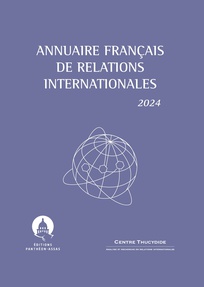Negotiating Local Business Practices With China in Benin
Folashadé Soulé
Carnegie Endowment for International Peace, avril 2022
Lire à https://carnegieendowment...![]()
Summary
Commercial negotiations between Benin and China demonstrate how both sides navigate the dynamics of Africa-China business-to-business relationships. In Benin, Chinese and local Beninese officials engaged in drawn-out negotiations on a deal to construct a business center aimed at deepening business links between Chinese and Beninese merchants. Strategically located in Cotonou, Benin’s principal economic city, the center aims to promote investment and wholesale businesses by serving as a hub for China’s business-to-business relations not just in Benin but regionally in West Africa, especially in the large and growing neighboring market of Nigeria.
This paper relies on original research and fieldwork conducted in Benin from 2015 to 2021 and the author’s access to draft and final contracts from the negotiations, which allow for a side-by-side comparative textual analysis, as well as initial field interviews and follow-up interviews with key negotiators, Beninese businessmen, and former Beninese students in China. The paper shows how Chinese and Beninese authorities negotiated the establishment of the center and, above all, how Beninese authorities made Chinese negotiators adapt to local Beninese labor, construction, and legal norms and put pressure on their Chinese counterparts.
This strategy meant that negotiations took longer than usual to complete. China-Africa cooperation is often characterized by speedy negotiations, an approach that in some cases turns out to be harmful—since this can allow vague and unfair clauses to be featured in final contracts. The negotiations over the Chinese business center in Benin is a good example of how well-coordinated negotiators that take their time and work in coordination with various counterparts throughout the government can help facilitate better outcomes in terms of high-quality infrastructure and compliance with prevailing construction, labor, environmental, and business norms, while also preserving a good bilateral relationship with China.












